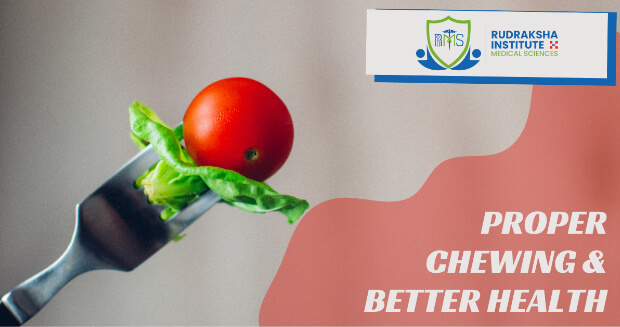
Do you chew each spoonful several times? Most of us are unlikely to know the answer to this question. We hardly even notice what we’re eating, much less how frequently we’re chewing! However, a lot of people think that how often we chew our food is the key to good health.
You may not be aware of it, but simply chewing your food 32 times has incredible physical and mental health advantages. And this is supported by scientific facts!
Horace Fletcher, an American nutritionist who lived in the 1800s, advised chewing each mouthful at least 32 times before swallowing it. In order to maintain his vigour and superhuman power, he himself chewed each mouthful 100 times. According to legend, Mahatma Gandhi lived by the proverb, “Drink your meal and eat your water,” which means to chew everything well before swallowing.
We’re going to tell you five of them here which has been proven in numerous studies, including the most recent one conducted, that properly chewing food leads to wonderful health advantages.
Longer chewing increases meal absorption in humans. The ability of the digestive enzymes to break down and extract nourishment from food molecules depends on their size. More chewing results in greater retention and decreased elimination of waste.
Try this: Chew a piece of bread 32 times, no matter what form it takes, whether it’s toast, a tortilla, or a roti. You can tell the carbohydrates have been completely broken down when it tastes like sugar in your mouth. Consider what would happen if you gulped down the same slice of bread rather than chewing it. It will remain in your stomach until it disintegrates.
We are all familiar with the post-dinner energy slump that follows a large meal. You know the feeling: mental fog, a tinge of coldness. This occurs because your overworked digestive system and stomach must receive an immediate influx of blood from your brain and extremities. Once more, a helpful tip that may be put into practise right away: chew every mouthful fully when you eat a meal that you would typically feel sleepy after, like, instance, lunch. Just observe the effects that chewing has. There is less need for blood to rush to the stomach because you have partially digested your food in your mouth. The end result is that you feel light and energised after eating rather than heavy and sleepy
According to studies, when we chew our food thoroughly, we consume smaller portions and lose weight. You might speculate that we get bored chewing as a result. Actually, it is not the case. What happens is that it takes some time for the stomach to let the brain know that it is full. We eat more than necessary when we devour our food since the stomach is unable to signal when we are satisfied. According to studies, mindful eating reduces portion sizes by 15%, resulting in a slow but steady weight loss.
In North India, a phrase from Ayurveda is frequently used. “Danton ke kaam Aanton ko doge toh bimaari aayegi” is how it goes. This means that you will invite problems if you give your digestive system or stomach the job that teeth are designed to do. Not only are we our food, but also our eating habits. Even insomaniacs can get better and deeper sleep by eating slowly and deliberately, and IBS patients can heal their allergic stomachs by chewing thoroughly.
According to Indian custom, having 32 teeth and chewing 32 times correspond. To chew 32 times, one for each tooth, is the equivalent. Even so, this figure is only there to help us remember how important it is to chew our food thoroughly.
RIMS Groups ©2025 | All Rights Reserved